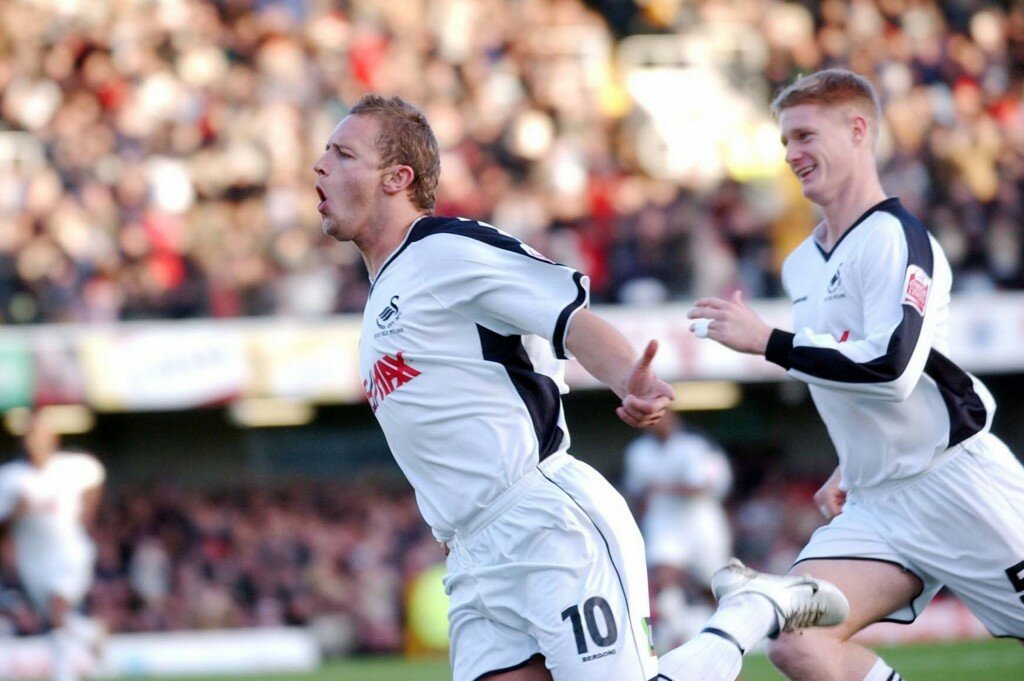
Hungry for Glory is Roma’s current motto. The club have taken to using it with imagery depicting the wolf that founded the Eternal City, ready to devour rival teams that enter Olimpico . Unfortunately for Roma, history has shown that their rivals can often tame the metaphorical wolf without too much bother. They haven’t yet tried releasing real wolves onto the pitch, which would surely yield better results, but in the meantime, they’ll have to make do with Francesco Totti.
At 38 ½ years old, we should be talking about Francesco Totti as someone on the verge of retirement, but yesterday he scored a wonderful brace in the Rome derby. Pardon my ageism, but old players aren’t supposed to be that influential; when they’re close to forty they should be wheeled out occasionally to steady the ship, not driving their team’s fight back in their biggest domestic fixture. This leads to two possible conclusions: one, Totti is not human; two, he’s one of the great players of his generation. It’s possible that both are true.
After two decades in Roma’s first team, including fifteen years as captain, and the second highest number of Serie A goals of all time, Totti’s status as a great should be beyond debate, but this is football, and there are always doubters. The shade these doubters cast is to point at his relatively meagre trophy haul. His only league title came in the first phase of his career, and since then he’s had to make do with a few cups and plenty of runner-up medals. He also has a World Cup, of course, but the 2006 tournament didn’t see Totti at his best; his greatest form for the national team was way back in 2000, when he helped Italy reach the final of the European championships, including an in the semi-final shootout against Holland, some twelve years before Pirlo repeated the technique against England.
But, it’s a cold, loveless world if footballers are judged only on who has won the most. At best trophies are a useful guide, at worst they’re woefully misleading (see Fernando Torres’ haul over the past few years). Rome is a beautiful, spectacular city. The romantic side of football demands the team that bears its name should boast the kind of attacking flair that draws universal admiration. How disappointing it would be if Roma were a highly effective side of utilitarian troopers, so how right it is that Totti is very much a player to be watched. Some players create a legacy defined by less tangible means than simply winning stuff.
Continue reading

 When god was dolling out physical attributes like speed, agility, balance or just a basic coordination of limbs, some of us missed out. For us lesser gifted souls, having a kickabout with some infants is this the closest we’ll get to being really good at football. Goading five year olds into tackles they cannot possibly win, adding a bit of commentary, “oh he’s still going, they can’t stop him, this is sensational!”, and finally, taunting the keeper by performing the worst and most deliberate step over ever. Of course, this is the only time someone like me would dare attempt a moment of flair; if I tried it on a fives pitch with my mates I’d suffer such a swift and brutal humiliation that I wouldn’t feel confident playing a simple pass for weeks. Playing football with massively inferior opponents is therefore great. Being a big fish in a small pond might seem unambitious. But, on the other hand, why expose your talents to their limitations if you don’t have to? Better to ply your trade at level were you can thrive. Clearly some professionals agreed.
When god was dolling out physical attributes like speed, agility, balance or just a basic coordination of limbs, some of us missed out. For us lesser gifted souls, having a kickabout with some infants is this the closest we’ll get to being really good at football. Goading five year olds into tackles they cannot possibly win, adding a bit of commentary, “oh he’s still going, they can’t stop him, this is sensational!”, and finally, taunting the keeper by performing the worst and most deliberate step over ever. Of course, this is the only time someone like me would dare attempt a moment of flair; if I tried it on a fives pitch with my mates I’d suffer such a swift and brutal humiliation that I wouldn’t feel confident playing a simple pass for weeks. Playing football with massively inferior opponents is therefore great. Being a big fish in a small pond might seem unambitious. But, on the other hand, why expose your talents to their limitations if you don’t have to? Better to ply your trade at level were you can thrive. Clearly some professionals agreed.